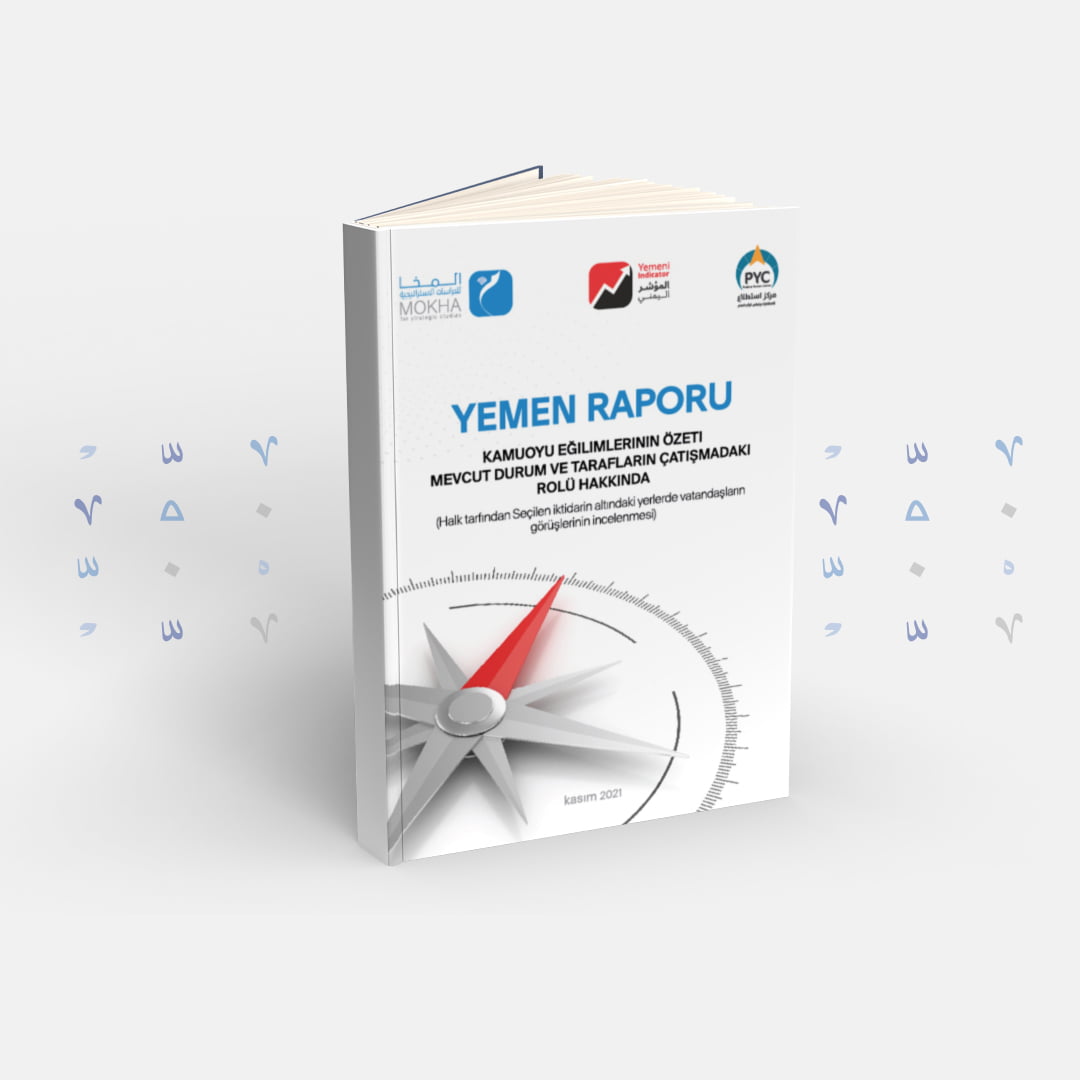Yemeni Indicator

Introduction
The Mokha Center For Strategic Studies carried out a survey of Yemeni
public opinion, in cooperation with the Polling Yemen Center (PYC) in the
internationally recognised government-controlled governorates and re-
gions during the period from August 28th to October 5th, 2021, in order to
identify the citizens’ impressions of the general situation in the country
and their views on the role of the internal parties and external states and
their impact on the current conflict.
The sample size was (500) individuals, aged 18 years and over, and they
were distributed equally according to gender (250 males, 250 females).
The urban internationally recognised government-controlled governorates
(cities and urban centers) were selected, as this type of sample fits the
study of large societies, especially social studies. The sample size was
calculated at an error rate of (0.043), and the sample was distributed over
(50) urban areas that included (9) governorates. They are: Taiz, Al-Dhalea,
Lahj, Aden, Abyan, Shabwa, Hadramawt, Al-Mahra, and Ma’rib.
The governorates and areas that are under the control of the Houthi
insurgency were excluded due to the difficulty of conducting field work
as well as the impossibility of interviewing respondents or expressing
their opinions freely due to security risks to the citizens themselves and
to field researchers in these areas. This poll was carried out by (20) male
and female researchers through field interviews conducted individually and
directly face to face with the respondents whose responses were typed
electronically.
This report is divided into six sections as follows:
– Section one: General data of the respondents.
– Section Two: Citizens’ assessment of the general situation in Yemen.
– Section Three: Causes, parties, and consequences of the current war
and conflict.
– Section Four: The role of foreign countries and the degree of their in-
fluence on the current war and conflict.
– Section Five: Solutions and treatments (internal and external) to the
current conflict.
– Section Six: Ways to mitigate the current humanitarian crisis.
The implementation of this survey faced some difficulties and obstacles
in light of the general and security conditions in some governorates such
as Aden, Marib, AlMahra, and Shabwa. Despite these difficulties, they were
overcome and the survey was completed successfully.
Before reviewing the results of this survey, we would like to thank all
researchers for their efforts in implementing this work on the ground. We
also thank the respondents who agreed to participate in this survey.

